What Should You Do At an Audition?
A step-by-step guide
(By Jim Webb)
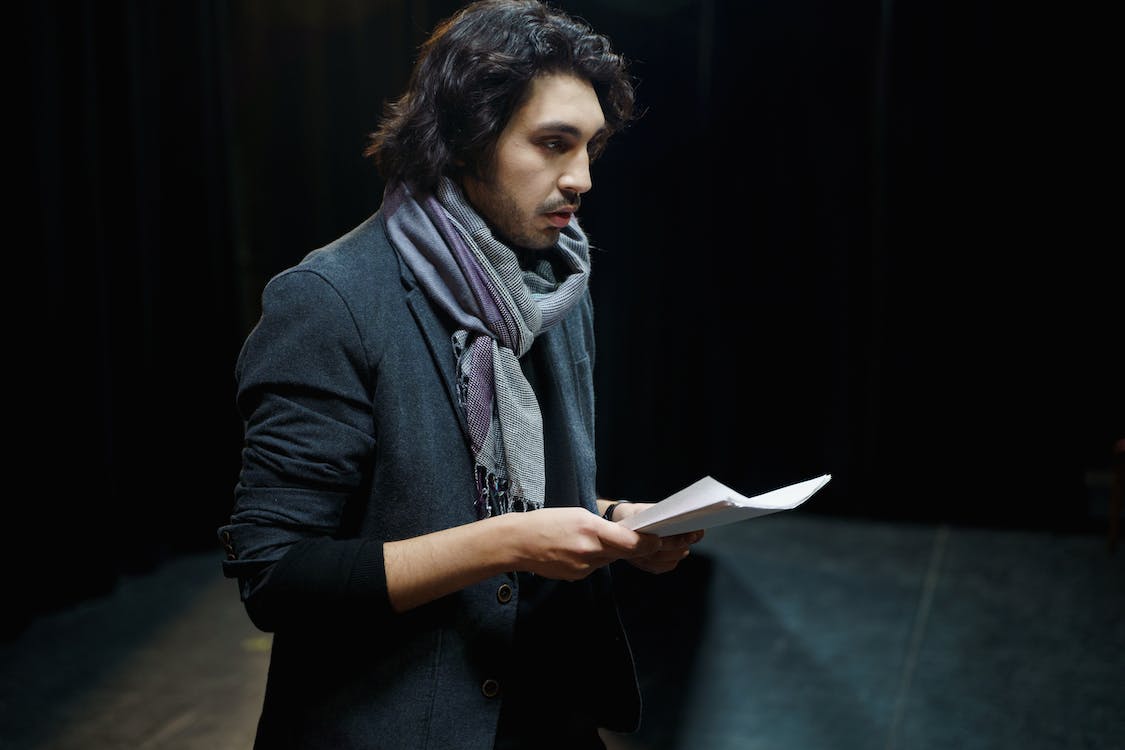 (Photo: Cottonbro | Pexels)
(Photo: Cottonbro | Pexels)
In a typical audition, several key activities take place:
Check-In: Upon arrival, you’ll check in with the audition staff. This might involve filling out paperwork, confirming your contact information, and receiving any materials or instructions for the audition.
Waiting: Depending on the size of the audition and the number of participants, there may be a waiting period before your turn. Use this time to mentally prepare and stay focused.
Introduction: When it’s your turn, you’ll likely be greeted by the audition panel, which may include directors, producers, casting directors, and possibly others involved in the production. They may briefly introduce themselves and provide any necessary instructions.
Performance: You’ll perform your audition piece, whether it’s a monologue, scene, song, dance, or a combination of these, depending on the requirements of the audition. Make sure to give it your best effort and showcase your skills and talent.
Direction or Feedback: After your performance, the audition panel may provide feedback or direction. They might ask you to try the scene again in a different way, make adjustments to your performance, or provide notes for improvement.
Questions: The panel may ask you questions about yourself, your experience, your availability, or your interpretation of the character or scene. Answer honestly and confidently.
Thank You and Departure: After your audition is complete, thank the audition panel for the opportunity. You may then leave the audition space unless instructed otherwise.
What should you do during an audition?
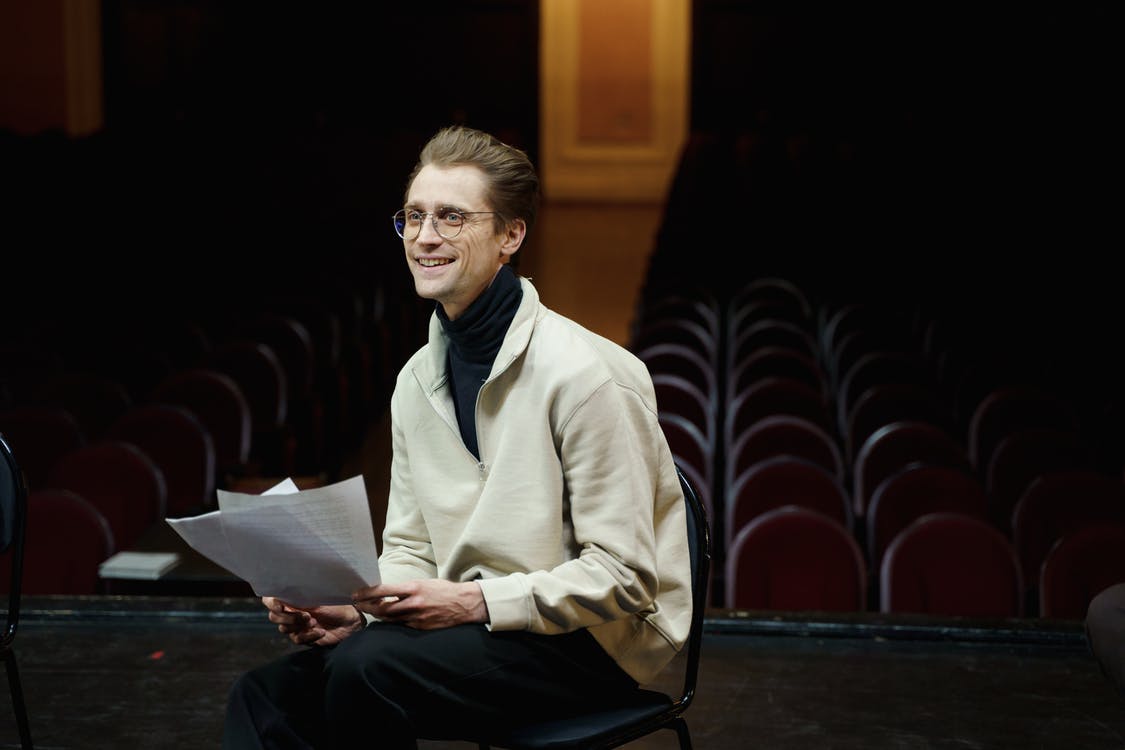 (Photo: Cottonbro | Pexels)
(Photo: Cottonbro | Pexels)
During an audition, it’s essential to conduct yourself professionally and respectfully. Here are some rules to follow:
Arrive on Time: Punctuality is crucial. Arrive early to ensure you have enough time to fill out any necessary paperwork and mentally prepare for your audition.
Follow Instructions: Pay close attention to any instructions given by the casting team or audition organizers. Follow them carefully to demonstrate that you’re attentive and cooperative.
Respect the Space: Treat the audition space with respect. Avoid touching props or equipment unless explicitly instructed to do so.
Be Prepared: Come to the audition fully prepared. Know your lines (if applicable) and have practiced your performance beforehand.
Stay Focused: Maintain focus during your audition. Avoid distractions and stay in character, even when you’re not actively performing.
Be Courteous to Others: Treat fellow actors, staff, and audition officials with respect and courtesy. Avoid disruptive behavior or negative comments about others.
Be Flexible: Be open to direction and feedback from the casting team. Don’t be defensive or resistant to adjustments they may suggest.
Stay Professional: Keep your behavior and language professional at all times. Avoid making inappropriate jokes or comments.
Show Confidence, Not Arrogance: Confidence is important, but avoid coming across as arrogant or overly confident. Be humble and approachable.
Thank the Audition Panel: After your audition, thank the casting team or audition panel for the opportunity. Expressing gratitude shows professionalism and courtesy.
Accept Rejection Gracefully: Not every audition will result in a callback or role. If you’re not selected, accept the decision gracefully and thank the casting team for their time.
Keep Confidentiality: Respect the confidentiality of the audition process. Avoid discussing audition details or sharing sensitive information about the production.
Can you just walk into an audition?
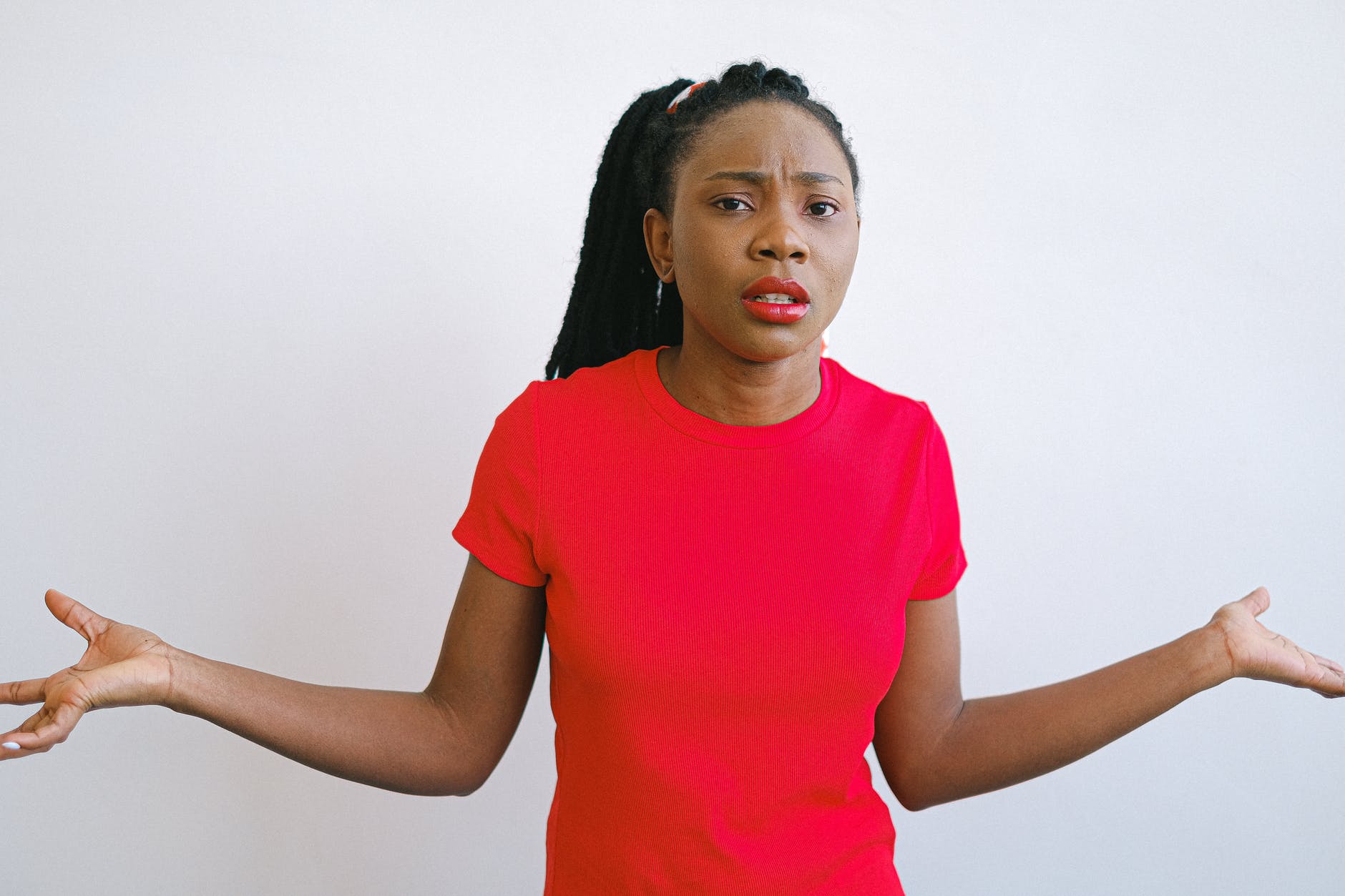 (Photo: Anna Shvets | Pexels)
(Photo: Anna Shvets | Pexels)
In most cases, you cannot simply walk into an audition without prior arrangement or invitation. Auditions are typically organized events where participants are required to register or submit materials in advance.
Is it better to be first or last at an audition?
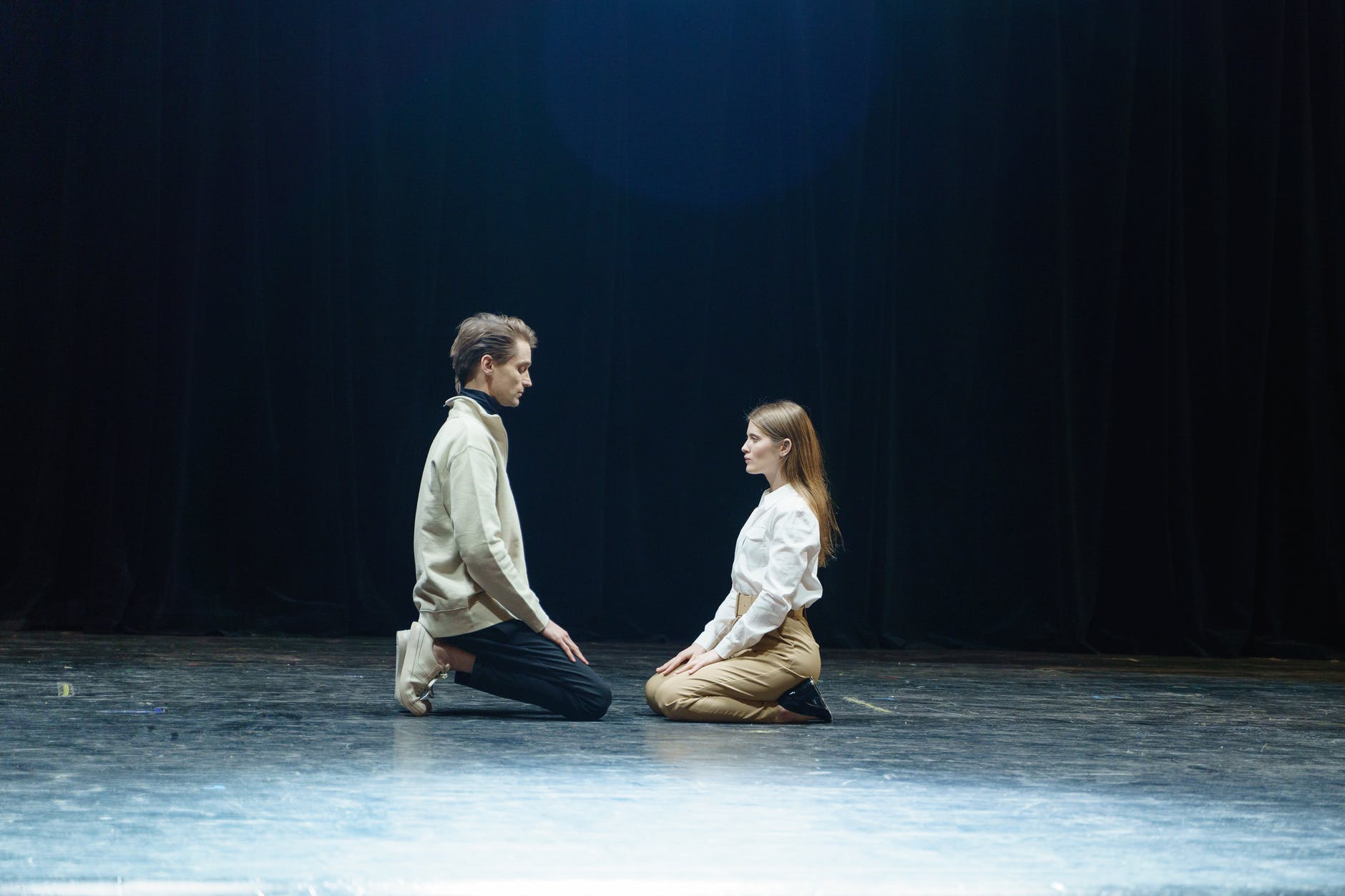
There is no definitive answer to whether it’s better to audition first or last because it largely depends on individual preferences and the dynamics of the audition process.
Auditioning first can set the tone for the audition panel. If you perform exceptionally well, you may leave a lasting impression. However, being first means you won’t have the opportunity to observe other auditions and adjust your performance based on what you’ve seen.
Auditioning last allows you to observe other performances and potentially adjust your own based on what you’ve seen. However, there’s a risk of fatigue among the audition panel by the end of the day, which could affect their receptiveness.
Ultimately, what matters most is the quality of your performance and how well you prepare. Whether you audition first or last, focus on delivering a confident, engaging, and memorable performance.
What are good signs in an audition?
 (Photo: Andrea Piacquadio | Pexels)
(Photo: Andrea Piacquadio | Pexels)
During an audition, there are several positive indicators that suggest you’re making a good impression on the casting team. Here are some good signs to look out for:
Engagement: If the casting team appears engaged and attentive during your performance, such as making eye contact, nodding in agreement, or leaning forward, it’s a positive sign that they’re interested in your audition.
Positive Feedback: If the casting team provides positive feedback during or after your audition, such as complimenting your performance, expressing appreciation for your interpretation of the character, or offering encouragement, it indicates they were impressed by your work.
Callbacks: If you’re asked to return for a callback audition, it’s a strong indication that the casting team is considering you for a role. Callbacks typically involve further auditions or interactions to assess your suitability for specific roles.
Direction and Adjustments: If the casting team provides direction or asks you to make adjustments to your performance, it means they see potential in you and are interested in seeing how you respond to direction. This indicates that they’re considering you for the role and want to explore your versatility.
Length of Audition: If your audition extends beyond the allotted time or if the casting team engages in additional conversation with you after your performance, it suggests they’re interested in learning more about you and your abilities.
Interest in Your Background: If the casting team asks questions about your acting experience, training, or background, it indicates they’re interested in getting to know you better and assessing your suitability for the role.
Body Language: Pay attention to the body language of the casting team. Positive body language, such as smiling, nodding, or leaning forward, indicates they’re receptive to your audition.
Thank You and Follow-Up: If the casting team expresses gratitude for your audition and provides information about next steps or how to follow up, it suggests they view you as a serious candidate for the role.
Where do you look during auditions?
 (Photo: Samson Katt | Pexels)
(Photo: Samson Katt | Pexels)
During auditions, where you look can depend on the specific requirements of the audition and your personal preferences.
Focus on Your Scene Partner: If you’re performing a scene with another actor, it’s important to maintain eye contact and engage with your scene partner. This helps create a sense of connection and authenticity in your performance.
Direct Address: If your audition piece involves direct address to the audience or camera, you may need to look directly into the eyes of the casting team or the camera lens. This helps establish a connection with the audience or viewer.
Off-Camera: If you’re auditioning for a film or TV role and there’s a camera present, you may need to look slightly off-camera to maintain proper framing and composition. The casting director or reader may stand next to the camera to serve as your scene partner.
Neutral Gaze: In some cases, it’s appropriate to maintain a neutral gaze, especially if you’re not directly addressing anyone in particular during your audition piece. Avoid staring off into space or looking distracted.
What questions will I be asked in an audition?
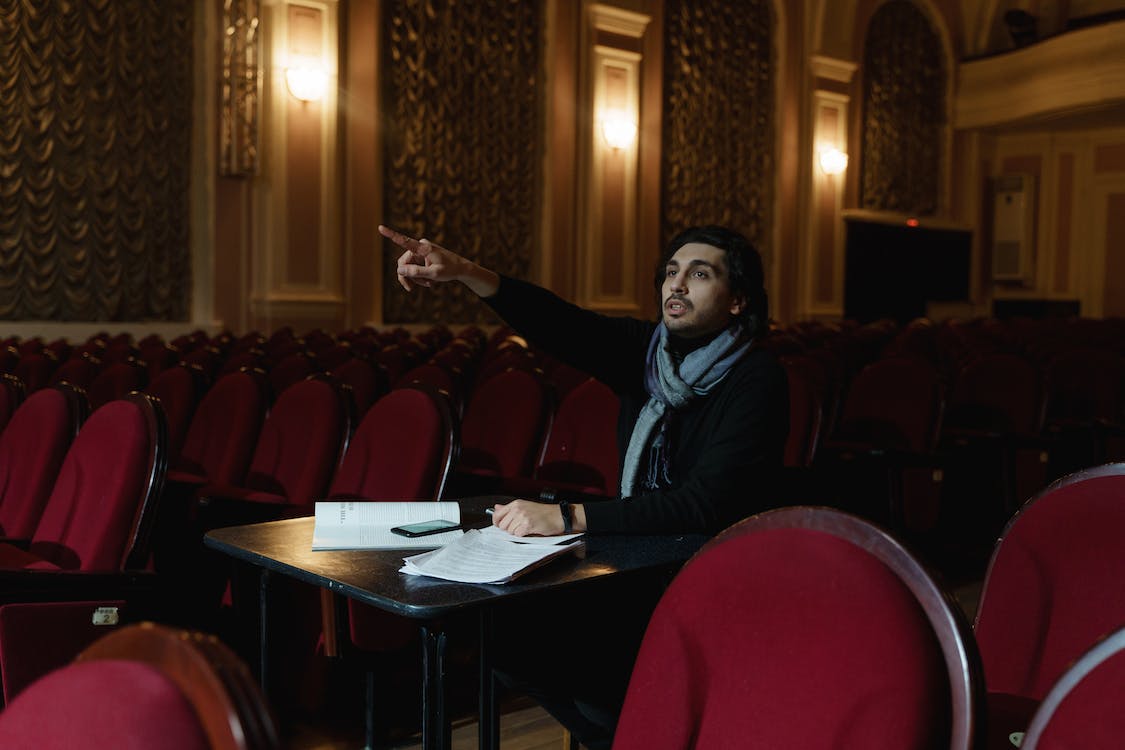 (Photo: Cottonbro | Pexels)
(Photo: Cottonbro | Pexels)
During an audition, the casting team may ask you a variety of questions to get to know you better, assess your suitability for the role, and gauge your understanding of the character and the production. Here are some common questions you might encounter:
Tell Us About Yourself: This is a broad question that allows you to introduce yourself and provide an overview of your background, experience, and interests as an actor.
What Inspired You to Audition for This Role/Production?: The casting team may want to know what drew you to the specific role or production and why you’re interested in being a part of it.
What Experience Do You Have That’s Relevant to This Role?: They may inquire about your past acting experience, training, or specific skills that are relevant to the role you’re auditioning for.
How Do You Interpret This Character?: The casting team may ask for your interpretation of the character you’re auditioning for. Be prepared to discuss the character’s motivations, traits, and how you plan to bring them to life in your performance.
Have You Prepared Anything Special for This Audition?: They might inquire about any special preparation you’ve done for the audition, such as research, character development, or specific choices you’ve made in your performance.
How Would You Approach a Challenging Scene or Moment in the Script?: They may present you with a hypothetical scenario or ask how you would handle a challenging scene or moment in the script. Be prepared to discuss your approach and any strategies you would use to tackle the scene.
Are You Comfortable with [Specific Requirement or Aspect of the Role]?: They may ask about your comfort level with certain aspects of the role, such as physicality, accents, or nudity, to ensure you’re prepared for the demands of the role.
What Are Your Availability and Schedule Like?: They may inquire about your availability for rehearsals, performances, or other commitments to ensure you’re able to commit to the production schedule.
Do You Have Any Questions for Us?: Towards the end of the audition, they may give you the opportunity to ask any questions you have about the production, the role, or the audition process.



